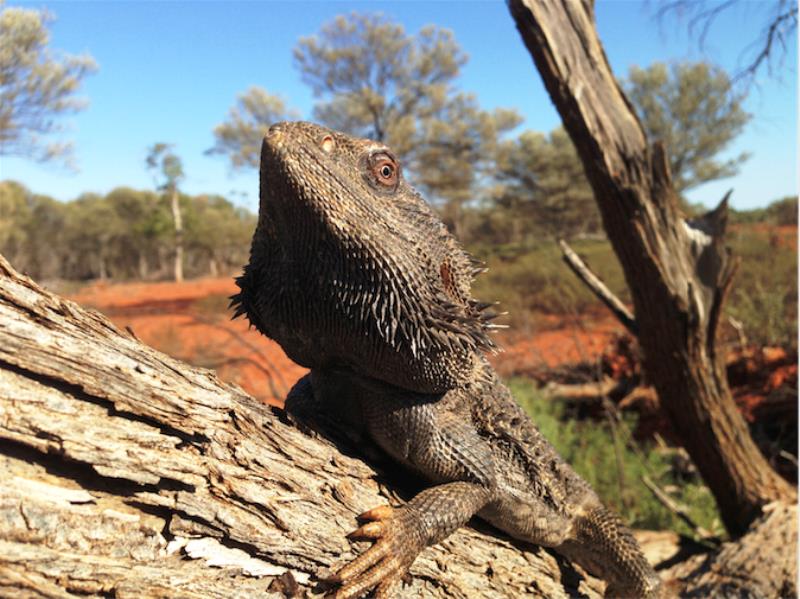Marcus Butler
22 December 2017: Researchers at the University of Canberra have already found sex-reversal among Australia’s wild bearded dragon lizards, and now a study of their embryonic development has revealed a surprising twist.
Research Scientist in Developmental Biology at the University’s Institute for Applied Ecology (IAE), Sarah Whiteley, uncovered the fact that all developing dragon embryos grow male sexual organs (hemipenes) whether they are male, female, or have had their sex reversed.
The Sex-reversal, which occurs when the dragons’ eggs are exposed to temperatures upwards of 36°C, results in individuals that are genetically male, but are fully-functioning females.
Ms Whiteley said the study examined the dragons’ embryo development within the egg.
“Unexpectedly, all females developed the male form of genitalia, a pair of hemipenes, which regressed close to hatching.”
“The dragon embryos that were exposed to the higher temperatures developed faster, but overall their body and external genital development was unaffected by temperature, their own sex reversal, or whether their mothers were sex reversed or not,” Ms Whiteley said.
The project involved incubating 265 eggs either at 28°C or 36°C, and used new non-destructive technique for genotyping the embryos. Ms Whiteley is the lead author of the article, Sex determination mode does not affect body or genital development of the central bearded dragon (Pogona vitticeps), published in the journal EvoDevo.
Collaborators on the research include IAE’s Distinguished Professor Arthur Georges, Wendy Ruscoe, Meghan Castelli, along with Dr Clare Holleley from CSIRO, and Dr Vera Weisbecker from the University of Queensland.



